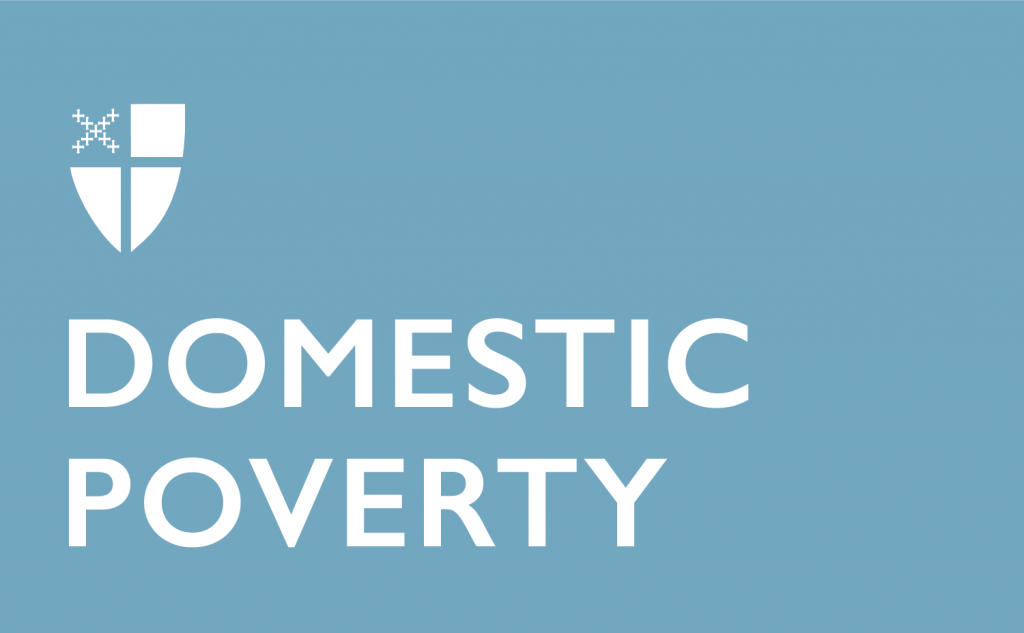Pennsylvania after school program nurtures youngsters with homemade, family-style meals
The 25 children who come to the Eagle’s Nest After School program at St. John’s Episcopal Church in Lancaster, PA, don’t often get to sit down to a hot, healthy, homemade meal, served family style.
So when they come to the church after school, one day a week, volunteers make a point of stressing that. A meal – prepared by the children and eaten together – is the highlight of their weekly gathering.
“We do a full and complete dinner each session,” said Sue Martin, coordinator of the program, which recently received a $750 Jubilee Ministry Health and Nutrition grant to help purchase food for the children. “The tables are beautifully set every week by the kids. The conversation is always very calm, supporting and interesting. This is a model for meals that they don’t have any experience with at all. Unfortunately, their home settings don’t allow for that. It’s always processed foods eaten on the fly, or not at all. But we really stress nutrition, fruit and vegetables at every meal.”
The children – all fourth- and fifth-graders from a neighborhood elementary school – generally have no caregiver at home when they get home from school. They live in an urban area without grocery stores, and while there is a farmer’s market within walking distance, the produce and meat offered for sale there is expensive. And until the children learn some cooking basics, many raw foods don’t really offer much nutrition.
At Eagle’s Nest, they learn basic kitchen skills such as cutting and peeling, turning foods with a spatula, staying away from the hots parts of the stove, and other safety skills. They also learn to prepare healthy foods they may never have experienced otherwise.
The leftovers go home with the children, which pleases them – and their parents, Martin said.
“We’ve been trying to teach them about not wasting any food, and only taking what they can eat,” she said. “There’s always enough for seconds, and they’re always starved when they come to us. But this year, we started using a scale. When they scrape their uneaten food from their plates into a bucket, we weigh it, and we’ve made a graph to show how they’re doing with waste. In the beginning, they were shocked. Now they’re really conscious about not being wasteful, so that instead of wasting food, the extra can go home to their families.”
Eagle’s Nest is one of several Jubilee Ministries that will use its Health and Nutrition grant to feed and educate children about good nutrition. Others include:
- Coal Country Hangout Youth Center (CCHYC), Northern Cambria, PA. A study conducted last year at the Northern Cambria Elementary School found that just under 7 percent of pre-schoolers were a healthy weight, while 33 percent were overweight and 60 percent were obese. But after the children spent a year eating healthier foods and being more physically active, 47 percent attained a healthy weight, and 53 percent were overweight or obese. The CCHYC hopes to continue providing healthier foods and structured physical activity for young people in the community, most of whom qualify for free or reduced-price lunches at school because they live in poverty.
- St. Peter’s Episcopal Church, Freehold, NJ. Freehold Borough is a food desert. Almost 74 percent of children there qualify for free or reduced-price lunches at school, but during the summer, the closest feeding program is 15 miles away. So in 2011, St. Peter’s launched a pilot ministry called “Family Table.” Two days per week during August, children and their parents are invited to free lunch in the parish hall. All the lunches are prepared using USDA nutrition guidelines. In August, 270 lunches were served. The Jubilee grant will help St. Peter’s to move the ministry beyond the pilot stage.
- Neighborhood Meals and Enrichment Program (NMEP), Cedar Rapids, IA. Christ Episcopal Church in Cedar Rapids has sponsored NMEP for 24 years. The program serves a hot, nutritious noon meal to children and their families in the Johnson Elementary School area during summer vacation. The church also serves the school with a summer reading program, school supplies, mittens, hats and a food pantry.
- After School Tutoring and Arts Program, St. Thomas Episcopal Church, Battle Creek, MI. This three-day-a-week program for elementary students includes tutoring, study skills development, and group arts instruction. A key component of this program is the distribution of a healthy snack.
- St. Mark’s BackPack Kids Program, Venice, FL. This outreach program of St. Mark’s Episcopal Church in Venice supports children at Venice Garden Elementary School. In partnership with All Faiths Food Bank, the program provides homeless or low-income children with backpacks filled with healthy, kid-friendly groceries each Friday, so the children will have something to eat over the weekend. At least twice a month the backpacks contain fresh produce, nutrition information for parents and nutrition activity sheets for students.
–The Rev. Rebecca Jones is a deacon and serves as the Diocesan Jubilee Officer in the Diocese of Colorado.

